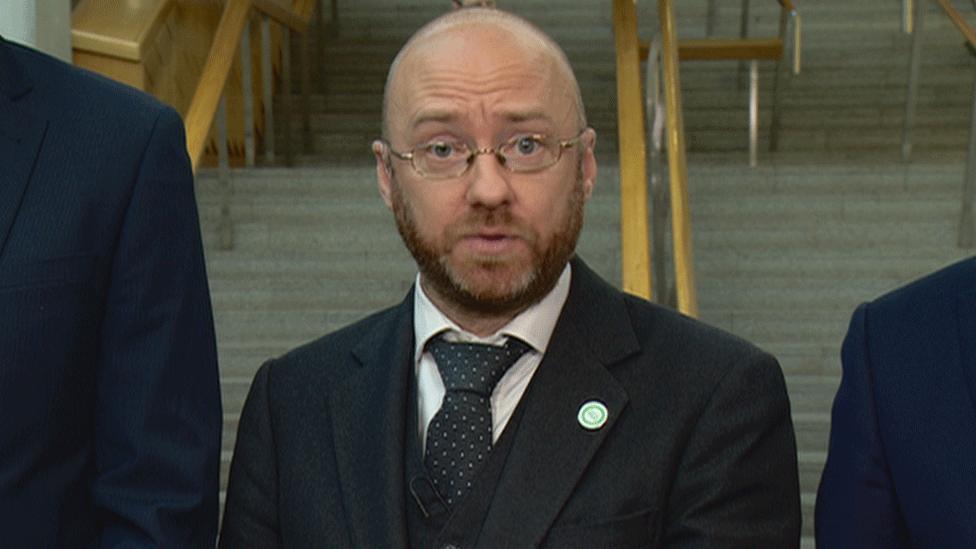Scotland's budget: Jeers and cheers
- Published
Murdo Fraser refers to the Scottish Greens as 'lentil-munching sandal-wearing watermelons'
Party politicians frequently gain succour from identifying and targeting villains. In search of suitable hate figures, their own ranks generally suffice.
Sometimes, however, they are obliged to look beyond their own back or front benches. Step forward the new target for disparate opprobrium. Patrick Harvie. (Hiss and, indeed, boo!)
For the Tories, Murdo Fraser could scarcely conceal his elegantly contrived contempt.
Mr Harvie, he suggested, was the Hard Left, high tax leader of a bunch of sandal munching, lentil wearing reprobates. (Or it might have been the other way round.)
To Kezia Dugdale, she who leads Labour. Her fury with Mr Harvie seemed genuine. He was a "fig leaf" for the SNP, placing Nationalism first, austerity second and the environment way down the list.
And what was Mr Harvie's crime? He had struck a bargain with the SNP to ensure Parliamentary endorsement for the Scottish Government's tax and spending budget.
Mr Harvie responded by suggesting that his counterparts were "throwing their toys out of the pram" while he was responsibly bargaining in the interests of Scotland. The alternative, he said, would have been no budget at all, threatening public service provision with chaos.
The details? Well, you know them already, at least in outline, if you were reading this site yesterday or absorbing my contributions to the telly or wireless.
More cash for local government, a freeze on the threshold for the 40p upper rate, meaning higher earners will pay up to £400 more in Scotland than elsewhere in the UK (although not more in absolute terms.)
Aside from the deal with the Greens, Derek Mackay, the finance secretary, freelanced a little with new cash for the police and Scottish Enterprise. He looked, it is fair to say, pretty content.
Remember those UK coalition days?
But then he wasn't being accused of lentil-munching or indeed of displaying fig leaves. (I exempt the sandals: they are probably de rigueur in Renfrewshire, whence he hails.)
There are always political risks in taking decisions, especially cross-party decisions. (Just ask the LibDems after their experience in UK coalition with the Tories. Tuition fees anyone?)
And, certainly, the Greens had excoriated the SNP in advance of the deal, demanding still higher levies from upper earners.
But Derek Mackay wasn't having that. He stuck, mostly, to his tax plans, finding the additional cash for local councils down the back of the Bute House sofa where it had been resting since the 18th century.
So why the inflamed rhetoric? Because the parties concerned were honing their narrative for the May council elections and beyond.
The Tories will condemn the SNP (and their new found verdant chums) for hiking tax in Scotland above the level in England. That could yet prove an entertaining contest in areas with a high proportion of upper earners.
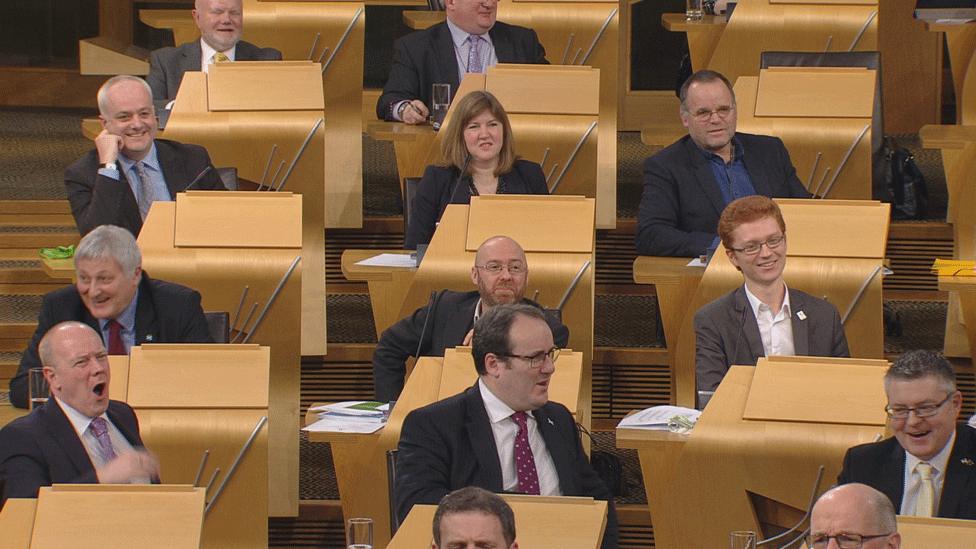
The Scottish Greens were the focus of Tory criticism
Labour will condemn the SNP and the Greens for still falling short, in their view, of the cash required by local government. Scottish Ministers have moved to ameliorate that, while still insisting that local services more generally are being protected.
Indeed, Kezia Dugdale ratcheted her indignation up to new levels when she accused Mr Mackay of being "completely duplicitous" in talks with her. She claimed he had spent the first half hour denying there were cuts then the remainder of the meeting offering to mitigate them.
Mr Mackay looked haughtily dismissive. His predecessor, John Swinney, spoke out rather bluntly on his behalf, albeit from a sedentary position, later drawing a mild rebuke from the chair.
How important is the deal?
So do we have a new coalition in Scotland? I would say not, at least in any formal or lasting sense. Certainly, the deal is highly important - and will carry across all stages of the budget, its attendant local council settlement and, crucially, the tax resolution which precedes Stage Three of budget consideration.
And, further, co-operation can become endemic, once established. For example, from 2007 to 2011, it was the Tories who regularly extracted deals from the SNP in return for backing the budget.
Two points, however. The Greens had to persuade themselves before backing this deal. It was a tough call, given their wider stance on tax. Patrick Harvie is now saying that he would expect broader reform in future.
Further, I noted that the sharpest comments from the Finance Secretary and the First Minister were aimed at the Tories and Labour. Obviously, not the agreeable Greens. But not the Lib Dems either. Perhaps keeping something in reserve?
- Published23 January 2017
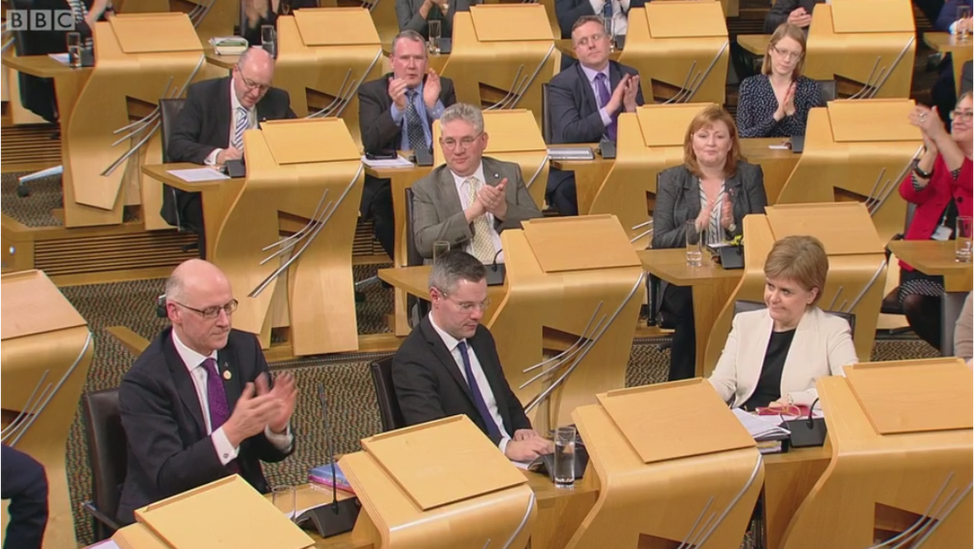
- Published2 February 2017
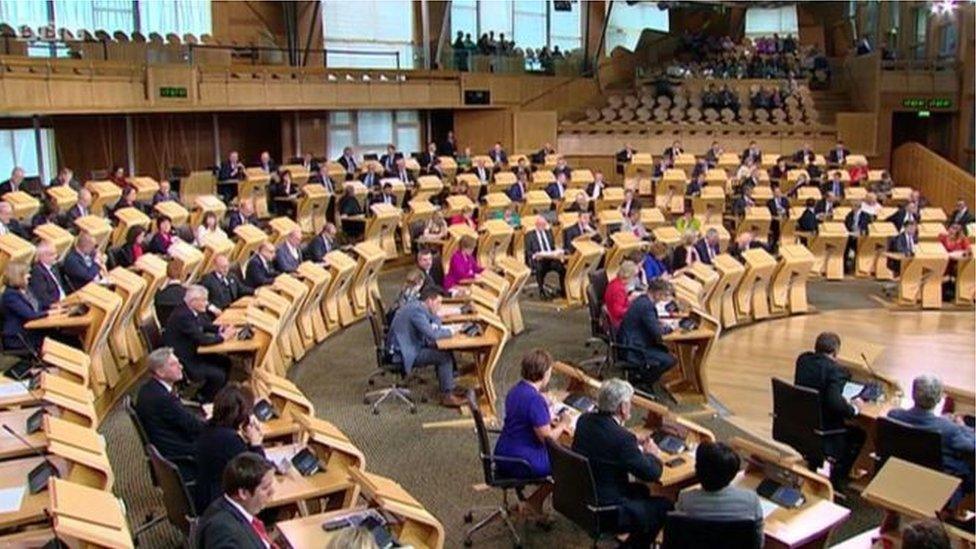
- Published1 February 2017
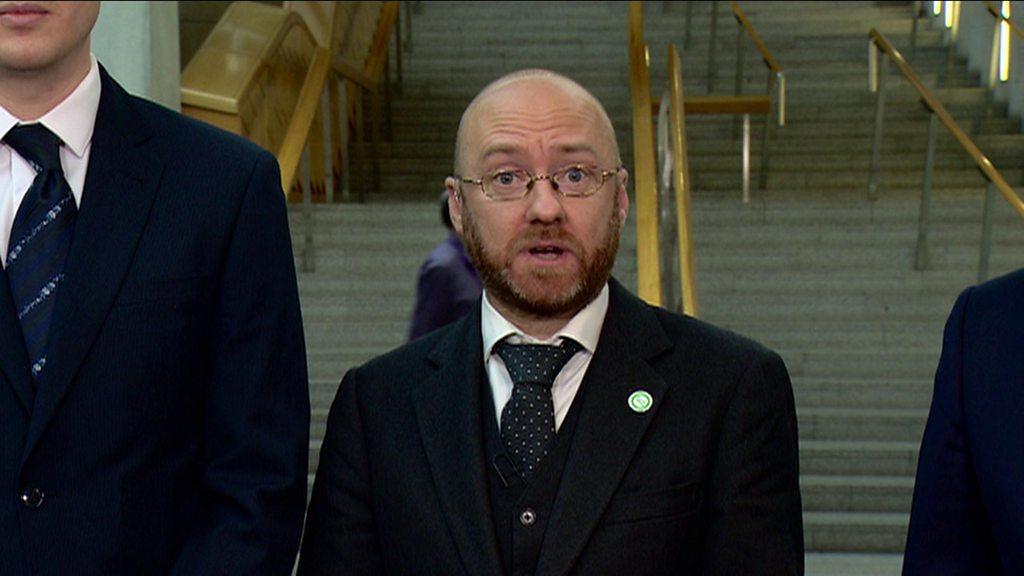
- Published1 February 2017
